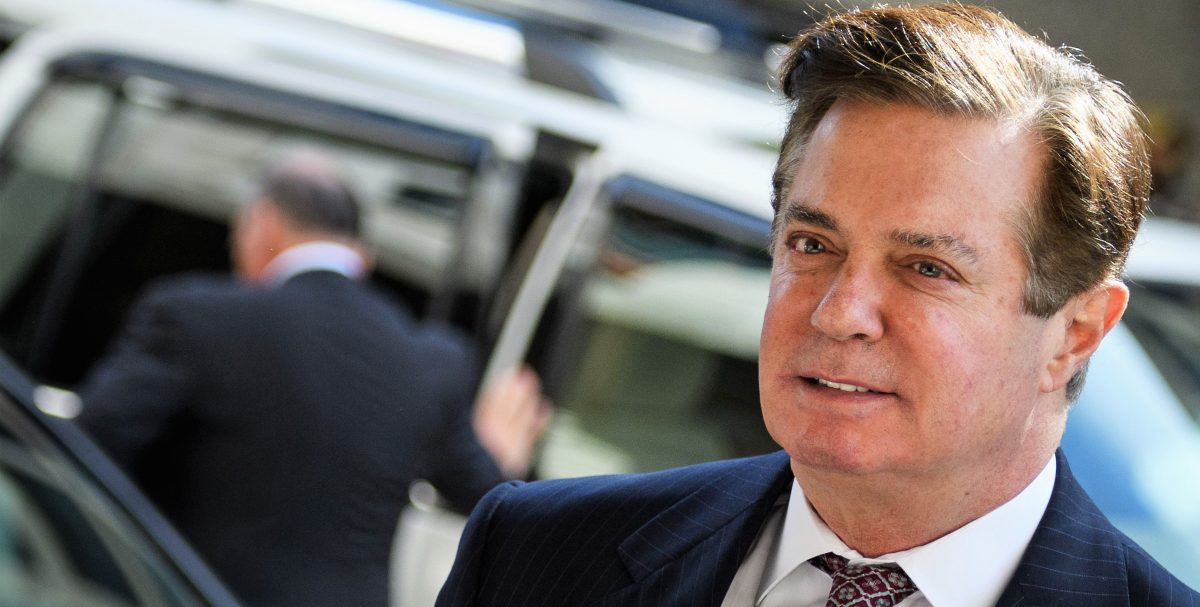
Both the prosecution and the defense finished up closing arguments on Wednesday at the Paul Manafort trial, but it was the defense who managed to raise the eyebrows of keen observers.
George Washington University Constitutional Law Prof. Jonathan Turley pointed to the controversy in his piece, “Did Manafort’s Lawyers Just Commit A Serious Violation In Its Closing Argument?” The apparent violation being that Manafort’s defense said their client was only there because special counsel Robert Mueller and his prosecutors “selectively” went after Manafort and “stack[ed] up the counts.”
Turley said that this appeared to be in direct violation of Judge T.S. Ellis III’s pre-trial order that neither the prosecution nor the defense was to reference selective prosecution or President Donald Trump.
From Turley:
According to reports, the defense team made reference to how the underlying loans by Manafort were not matters of concern until the “Special Counsel” entered the field and then “stacked the counts.” That sounds awfully like special prosecution. The defense also referenced Manafort’s work as campaign chair for Trump, which is not a direct violation but reinforces the selective prosecution argument.
The prosecution showed considerable restraint and raised the issue after the jury left the room. As discussed in my last column, Judge T.S. Ellis III is known to controversial and unrestrained comments in this and other trials. He has been unrelenting in his critical asides against the prosecutors in this case and has raised some potentially troubling issues. Ellis did not reportedly say much after this issue was flagged by the prosecutors and took the objections under advisement.
CNN’s Shimon Prokupecz reported Manafort lawyer Richard Westling‘s courtroom comments this way:
Turley wrote that “most judges would seriously consider sanctions” for conduct like this, but that it was possible Judge Ellis would simply issue an instruction to the jury.
Law & Crime’s Colin Kalmbacher reported that the comments prompted Assistant U.S. Attorney Greg Andres to request a curative instruction from Judge Ellis, telling the jury they could not consider the Department of Justice’s motive—or lack thereof—in bringing charges against Manafort. Ellis granted that motion.
Regardless, Turley said this was a “clearly a premeditated and risky act by the defense.” That, in turn, raises the question of why they would take such a risk when they offered no defense and called no witnesses.
This all goes back to July 24, when the government and the defense both quibbled about things they each said shouldn’t be mentioned at trial. Prosecutors wanted references to “selective prosecution” out of evidence and the defense wanted references to the Trump campaign out of evidence. The judge denied both motions as moot in an order because the parties agreed they had no plans of introducing this in evidence at trial.
In July, CNN reported that Ellis would allow prosecutors to mention Manafort’s role on the Trump campaign only in the context of Federal Savings Bank CEO Stephen Calk, who approved a Manafort loan and got a spot on a Trump economic advisory council. At the time, Manafort’s defense said that it had no plans of arguing that Manafort was victimized by “selective prosecution.” Team Mueller was crystal clear that mentioning their “motives” in prosecuting Manafort would not fly in front of the jury, and Judge Ellis was generally sympathetic to that.
The Trump campaign was referenced in the context of Calk, as Mueller prosecutors were allowed. Given that Judge Ellis granted a request for a curative instruction, he did not approve of all of the defense’s closing statements.
At the end of closing arguments and rebuttals on Wednesday, Ellis did shift his focus to jury instructions. After that, it will be up to the jury to reach a verdict.
[Image via Mandel Ngan/AFP/Getty Images]